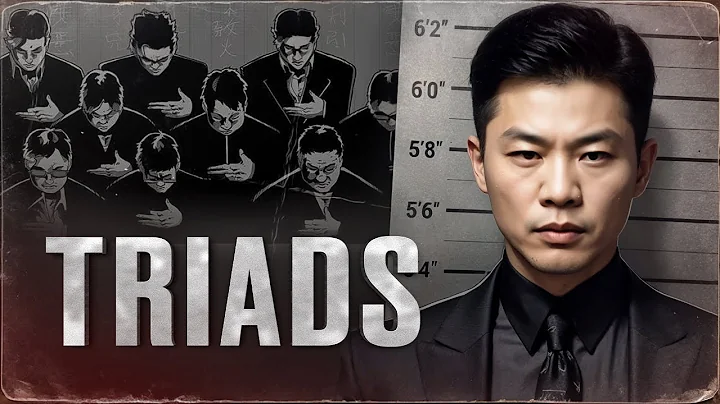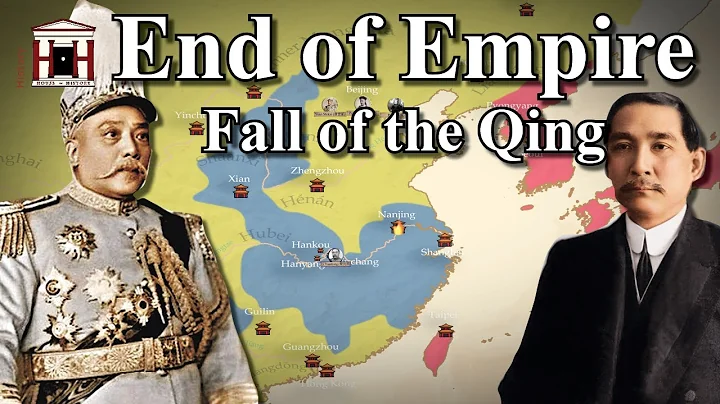In July 1910, the 74-year-old Hong Kong "Hongmen boss" Hong Quanfu breathed his last on the hospital bed.
This seemingly skinny old man has an extremely legendary life experience. His original name was Hong Chunkui, and he changed his name to "Hong Quanfu" after coming to Hong Kong. 46 years ago, he escaped by chance as a "three-thousand-year-old" member of the Taiping Heavenly Kingdom and has been purged. Tianjing (today's Nanjing) was burned into a sea of fire, and he became the only survivor among the more than 2,700 princes of the Taiping Heavenly Kingdom. From the moment he escaped, the 28-year-old "Ying King" Hong Chunkui vowed to avenge this blood feud.

Hong Quanfu
After that, he traveled around for many years, took refuge overseas, and launched the Guangzhou Uprising. Later, he was elected and became the Hongmen boss of Hong Kong. He led a group of brothers to engage in the anti-Qing cause for a long time, and he never forgot it. own "dream of national restoration".
In the second year of Xuantong (1910), Hong Quanfu completed his ups and downs, bizarre and magnificent life. Although he could not witness the collapse of the Manchu and Qing Dynasty with his own eyes, he knew that this day was not far away.
1. Once the "Three Thousand Years Old" of the Taiping Heavenly Kingdom
The Taiping Heavenly Kingdom arose in 1851. At that time, Hong Quanfu, formerly known as Hong Chunkui, was not yet 15 years old. He was the nephew of the uprising leader Hong Xiuquan and was born in Zhengjing Village, Huaxian County, Guangdong (today's Huashan Town), and later followed Hong Xiuquan, Feng Yunshan and others to Guangxi to preach. After Hong Xiuquan founded the "God Worship Cult", Hong Quanfu also became one of its members.

Jintian Uprising
On January 11, 1951, Hong Xiuquan launched the Jintian Uprising and was elected as the "Heavenly King" and named the country "Taiping Heavenly Kingdom". The young Hong Chunkui also joined the uprising army and made many military exploits. A few years later he was Promoted to "General Zuo Tian".
The uprising soon swept Guangxi. In the autumn of 1851, after the Taiping Army captured Yong'an, Guangxi, Hong Xiuquan divided the kings in Yong'an, which was historically known as the " Yong'an Organization ".
In addition to the "Heavenly King" Hong Xiuquan, there are five other people who have been crowned kings, namely Dong Wang Yang Xiu Qing, Xi Wang Xiao Chaogui, South King Feng Yunshan, Bei Wang Wei Changhui and Wing King Shi Dakai, just a few years ago. Months later, the Southern King Feng Yunshan and the Western King Xiao Chaogui died in battle, leaving only the Eastern King Yang Xiuqing and three other people to hold the actual power of the army.
In 11853, the Taiping Army captured Nanjing, made the capital here, and renamed it "Tianjing". As the power of the Taiping Army grew stronger, the Eastern King Yang Xiuqing developed a greater desire for power.
In 11856, after the Taiping Army broke through the Qing army's Jiangnan Camp, the Eastern King Yang Xiuqing repeatedly challenged Hong Xiuquan's leadership, which led to internal strife in the Taiping Heavenly Kingdom. After that, the extremely tragic "Tianjing Incident" occurred. In the end, the Eastern King Yang Xiuqing, The Northern King Wei Changhui was killed, and the Yi King Shi Dakai was forced to flee with his troops and was killed by the Qing army at the Dadu River.

After the Tianjing Incident, the military power of the Taiping Heavenly Kingdom suffered a serious blow, and Hong Xiuquan began to be suspicious of his generals.
In order to disperse military power, starting from 1859, Hong Xiuquan broke his promise to "never be king" three years ago. First, he named his younger brother Hong Rengan as "King Qian", and later made Chen Yucheng and Li A number of young generals who had made great achievements in war, such as Xiucheng, Meng Deen, Li Shixian, Yang Fuqing, were canonized as kings of England, loyal kings, etc. In order to balance the internal and external power, he also named the clan members who served as Zuo Tianjiang. Nephew Hong Chunkui was named "King Ying", and together with his relatives and generals, he named more than a dozen princes at one go.
Due to his high status, Hong Chunkui was called "Three Thousand Years Old" in the military camp. He was the right-hand man of Hong Xiuquan and was the right-hand man in Tianjing.

After that, as the war situation became tense, Hong Xiuquan, who was trapped in Tianjing, made many crazy actions, one of which was to indiscriminately grant royal titles.
Since 11862, Hong Xiuquan has enfeoffed more than 2,700 princes, most of whom were his clansmen or close associates. This broke the Taiping Heavenly Kingdom's rules of "rewards based on merit" and caused chaos in the Taiping Army's command, reduced combat effectiveness, and unstable people's hearts.
On June 1, 1864, Hong Xiuquan died of illness in "Tianjing". His 15-year-old son Hong Tianguifu took over as the " Young King ". More than a month later, "Tianjing" was captured by the Qing army, and Hong Xiuquan's The coffin was dug out by the Qing soldiers. After the Qing soldiers hacked Hong Xiuquan's body with knives and axes, he put it into a cannon and turned it into cannon fodder. Hong Xiuquan's eldest brother "Xin Wang" Hong Renfa died in battle, and his second brother "Yong Wang" Hong Renda and his younger brother Hong Xiuquan were killed. The leaders of the Taiping Rebellion, including the Heavenly King Hong Tianguifu, the British King Chen Yucheng, and the Loyal King Chen Xiucheng, were killed first. More than 2,700 other princes also fell into the hands of the Qing soldiers and could not escape their fate.
Because there were so many princes of the Taiping Heavenly Kingdom in Nanjing, it is said that a Qing army general soldier could capture several "princes" and go to claim credit and reward.
The "King of Ying" Hong Chunkui was more shrewd. He knew that the biggest difference between "Long Mao" and the Qing soldiers was their hair. After the city was broken, he immediately changed his clothes and shaved his head. In this way, he escaped the eyes and ears of the Qing soldiers and escaped by chance. After Nanjing, he hid all the way in Tibet. He did not dare to go to Guangxi or return to his hometown in Huaxian, Guangdong. Instead, he changed his name to Hong Quanfu and went to Huangdong Hongwuwei Village, Fenggang Town, Dongguan, Guangdong.

Hong Quanfu (Hong Chunkui)
This village in Fenggang has the same ancestry as Hong Xiuquan but a different clan. The Hong clan chief of the village saw that this young man had an unknown origin and was afraid of getting into trouble. He did not dare to admit him into the ancestral hall, but allowed him to stay nearby. Open up wasteland and cultivate land.
Hong Quanfu was already grateful for this. The Taiping Heavenly Kingdom successively sealed nearly 3,000 princes, and he was the only one who could escape the pursuit of the Qing soldiers.
After that, Hong Quanfu sold the gold, silver and jewelry he brought with him, hired people to open up land east of Xiangshan in Hongwuwei, bought a lot of land, and built ten row houses next to his own land, including one. The room was built into a small ancestral hall, with a sign of Hong's Ancestral Hall hanging outside the door, quietly enshrining the clan members who spilled blood on Tianjing and the generals of the Taiping Heavenly Kingdom.
2. Worked as a chef in Cuba and came to Hong Kong to become the boss of Hongmen
Hong Quanfu’s house in Hongwuwei, Fenggang Town, Dongguan is very grand. It has two entrances, five bungalows side by side, with gray tile roof, sandstone rammed walls, eaves and windows. Diaohua is a typical Hakka building.

Hong Quanfu's former residence in Dongguan
He married a wife and had children here, and lived a stable life for several years.However, he was not just trying to save his life. Deep in his heart, he also had a "dream of rejuvenating the country." One day, another uprising can be launched to overthrow the corrupt rule of the Qing Dynasty.
However, after living in Dongguan, Guangdong for several years, Manchu and Qing officials began to hunt down the remnants of Hong Xiuquan's Taiping Army. The Qing court hung arrest notices everywhere in Guangdong, Guangdong and . The news became more and more intense. Hong Quanfu knew that his identity was not well concealed. It is inevitable that he will be reported by people who know him in exchange for the bounty. In order to avoid pursuit and not to harm his wife and children at home, he fled to Hong Kong alone to avoid trouble.
Later, Hong Quanfu, who was living alone in Hong Kong, still felt unsafe and sold himself overseas as a coolie. He worked in Cuba for many years. In the process, this Taiping general who had led troops into battle in the past also devoted himself to studying. Learned how to cook well.
After that, Hong Quanfu used his skills to apply for a job on a foreign ship and became the head chef. He traveled across the oceans with the cargo ships and lived in no fixed place like the sailors. No one ever asked about his origins. Of course, Hong Quanfu Unwilling to just be such a chef and spend the rest of his life in the smoky years, he has a "dream of rejuvenation" deep in his heart. He usually hangs out at the Hong Kong Yihetang Aviation Club, always looking for another revolutionary uprising. Opportunity.
During the voyage, he met Mr. Sun Yat-sen, who traveled at home and abroad many times, and also transported weapons for Mr. Sun Yat-sen's revolutionary cause.
After working as a chef on foreign ships for decades, Hong Quanfu quit his job when he was old, returned to Hong Kong to settle down, and opened a small clinic on the way.
At that time, there was a party called "Hongmen" in Hong Kong. It was originally a secret organization in the late Ming Dynasty and early Qing Dynasty. It originated from the "Hanliu" of Chen Jinnan, the general envoy of Dongning in the Southern Ming Dynasty Chen Jinnan , which was often mentioned in novels and movies. The "Tian Di Hui" in China was later renamed "Hongmen" by the anti-Qing martyr Yin Hongsheng. By the late Qing Dynasty, "Hongmen" had become a medium-sized social organization in Hong Kong.

In order to call on compatriots to overthrow the Manchu rule, the "Resurgence Society" led by Sun Yat-sen planned to contact the "Hongmen" uprising in Hong Kong, which had anti-Qing origins. Hong Quanfu, a senior general of the Taiping Rebellion, was therefore elected as the "Hongmen" The host, participated in the event, and just like that, the former "Ying King" Hong Quanfu became the boss of Hong Kong's "Hongmen".
However, after all, Hong Quanfu was just a leader of the peasant uprising. He did not have a deep understanding of the meaning and nature of the revolution. What he wanted to establish was a feudal monarchy.
On August 14, the twenty-seventh year of Guangxu's reign (1901), Hong Quanfu contacted Xie Zuantai, Li Jitang and others sent by the headquarters of the Hong Kong Revive China Society and agreed together to prepare to contact the Hongmen Society Party in Guangdong and the south. He revolted in Guangzhou and named the country "Shuntian Kingdom of the Ming Dynasty". He also presided over the formulation of the founding program of the "Shuntian Kingdom".
Xie Zuantai was a patriotic overseas Chinese, a veteran of the Revival of China, and a student of Queen's College in Hong Kong. He later became the first person to design airship in China. Under his persuasion, Hong Quanfu agreed to establish the "Ming Shuntian Kingdom" as a modern country. It was also scheduled that Rong Hong, known as the "Father of Overseas Students", be the president of the provisional government, and the date of the uprising and various matters were set. Hong Quanfu was elected as the "Southern Guangdong Prosperous Han Dynasty General" of the "Shuntian Kingdom".
At this time, 37 years have passed since the fall of the Taiping Heavenly Kingdom.
3. The attempted uprising failed, and King Ying died in anger.
Hong Quanfu and others set the date of the uprising on Renyin New Year's Eve (January 28, 1903). They planned to launch armed force while the Qing court's Guangzhou civil and military officials were saluting at the Wanshou Palace banquet. Uprising, captured the city of Guangzhou, and then launched a nationwide uprising.
On the eve of the uprising, Hong Quanfu, who was rich in combat experience, had people draft the "Anti-Qing and Restoration of Han Dynasty" in the name of "Revolutionary General": "Every drop of our Han people will be taxed heavily, while the other Manchus Still having enough food and warm clothes, no plowing or weaving... Is it tolerable, which one is intolerable? This general laments his injustice, loves his comrades, raises the flag of righteousness, and supports the Han people. "
For this reason, the headquarters of the Hong Kong Revival Association and Hong Kong Hong Kong. Together they made a detailed uprising plan and purchased a large number of weapons.
Unfortunately, just three days before the armed uprising, their plan was reported to the government. Li Jitang, one of the leaders of the
uprising, was a patriotic wealthy businessman from Hong Kong. He was also the prototype character of Li Yutang in the movie "October Siege". In order to fight against the Qing Dynasty, he destroyed his family and bought 250 acres of land to relieve the difficulties. "Castle Peak Farm" was built as a secret residence for revolutionaries who came to Hong Kong and as a testing ground for testing weapons and ammunition.
In the autumn of 1902, Hong Quanfu proposed to raise 500,000 yuan for the Hongmen uprising in the province. Li Jitang generously promised to use his personal financial resources to bear all military expenditures. He also said that his inheritance and personal property " are fully calculated." It is worth about one million yuan, even if it fails completely, it will mean losing all the inheritance." When Li Jitang secretly purchased firearms, an arms dealer secretly had evil intentions in order to swallow up the 100,000 yuan deposit he had paid to buy the gun.
At the end of 1902, Li Jitang saw that an uprising was imminent, and asked Chen Shaobai who was going to Hanoi, Vietnam, to bring 10,000 yuan in travel expenses to Mr. Sun Yat-sen, saying: " I and Zuantai can raise troops in Guangzhou in the near future. When we capture the provincial capital, we will The purpose of welcoming Mr. Zhongshan back to Guangdong is the same as that of the Xingzhong Society, so don’t worry too much."
Three days before the date of the uprising, Guangzhou Shamian Tao De Foreign Co., Ltd., which had received a deposit of 100,000 yuan for Li Jitang's firearms, had a conflict with Li Jitang due to transportation issues. When the goods were not delivered on time, the foreign comprador actually asked Guangzhou The Qing Dynasty barracks reported information, which led to the arrest and raid of the uprising headquarters of Hong Quanfu and Li Jitang at the "Hutchison Inn" on D'Aguilar Street in Hong Kong. On January 25, Hong Quanfu's Hong Kong residence was searched by the British Hong Kong authorities, and many secrets were revealed. The documents were seized and many key members were arrested. At this time, Hong Quanfu happened to have led his men to Guangzhou and escaped capture.
At this time, the uprising had fallen into a passive situation. Although Hong Quanfu found sources of arms from other places, However, they could not be delivered to the rebels in time, and the secret contact point of the "Ming Shuntian Kingdom" in Guangzhou was also discovered by the Qing army. More than 20 key members including Liang Muyi and Chen Xueling were arrested. The Menhui were leaderless, which resulted in the Guangzhou Uprising falling short of success.
Regarding this attempted uprising, it was recorded in the 1903 entry of "Chronology of Sun Yat-sen":
"From January 25th to 28th, the Xingzhong Hui was appointed in advance. Xie Tai, Li Jitang and Taiping General Hong Quanfu conspired to revolt in Guangzhou, established the "Ming Shuntian Kingdom", and appointed Rong Hong as the president of the provisional government. At this time, the leak failed. "After the stillbirth of the
uprising, Hong Quanfu once again appeared on the list of important criminals arrested by the Qing court, and the reward was very high: a reward of 10,000 yuan for delivering Hong Quanfu's head, a title of Qianzong, and a huge reward for capturing Hong Quanfu alive. 20,000 yuan, and he was appointed as a guard.
Hong Quanfu knew that he had nowhere to live in Hong Kong, so he had to change his name to "Duckweed" and fled to Nanyang to avoid disaster. However, some minions of the Qing court were salivating for the high reward, but they could not find Hong Quanfu's whereabouts. He came up with a vicious plan. Zhang Zuoting, the arresting officer under Li Jia'an, the Guangdong arrest officer, found Wu Liu, a civilian who looked exactly like Hong Quanfu, on the street. He deceived Wu Liu into Hong Kong and killed him, and handed Wu Liu's head to the Governor's Office of Guangdong and Guangxi. Deshou, the governor of Guangdong and Guangxi, defrauded 10,000 yuan in reward money and the official position of Qian Zong. The governor of Guangdong and Guangxi, Deshou, and the governor of Guangdong, Li Xingrui, were overjoyed to learn that Hong Quanfu had been "conferred". They successively submitted memorials to the court to claim credit.

Hong Quanfu
And then. The real Hong Quanfu had settled in Singapore for many years. It was not until 1910 that he returned to Hong Kong for medical treatment due to his worsening condition.
At this time, the Qing court was in turmoil, and the British Hong Kong authorities turned a blind eye to these revolutionaries who had engaged in the anti-Qing cause in the past. Closing one eye and no longer asking about Hong Quanfu's origins
Lying on the hospital bed, the 74-year-old Hong Quanfu saw the news of assassinations of Qing ministers and petitions against the Manchu government coming from various places, and he felt deeply that the anti-Qing revolution was successful. The day was coming, but at this time he had already exhausted his energy and finally failed to witness the success of the 1911 Revolution. Instead, he died of serious illness in the Kowloon Hospital of Hong Kong and was buried in No. 6781 of the British Cemetery in Hong Kong. Tomb.
Although most of his life was rough and wandering, this "Prince Ying" who participated in the anti-Qing uprising since his youth still left his own legend with the spirit of unyielding struggle throughout his life. His descendants still live in Fenggang Town, Dongguan. area, and the former residence he left behind has been restored and preserved very well, becoming a place for future generations to pay homage to history and remember the pioneers.
Reference source: Academic research "A Preliminary Study of the Ming Dynasty Shuntian Uprising"
"Chronicle of Sun Yat-sen"
. China News Network " Lingnan Photos: The former residence of King Ying of the Taiping Heavenly Kingdom is still there and he was Zuo Tianjiang "





















